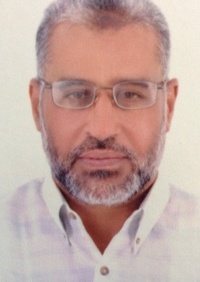Egypt: URGENT APPEAL – Enforced Disappearance of 4 Muslim Brotherhood Members, Including 2 Students
On 10 April 2015, Alkarama sent an urgent appeal to the United Nations Working on Enforced or Involuntary Disappearances (WGEID) regarding the disappearances of four Egyptian citizens in late 2014 and early 2015, because of their alleged affiliation with the Muslim Brotherhood, a socio-political movement that continues to be the subject of a violent repression from the authorities. Their political opinions also put them at direct risk of being tortured or ill-treated while being secretly detained, or of being denied necessary medical treatment, a common practice in Egypt.
20-year-old Archaeology student at Minia University, Omar Abdelwahab Hussein disappeared since his arrest by members of the police on 16 December 2014 in front of his university located north of Minya, a city 250km south of Cairo on the Western bank of the Nile River. According to witnesses, he was not given any reason for his arrest, nor shown a judicial warrant. Having not heard from him since, on 4 January 2015, his family sent telegrams to the Attorney General of Minya, the Ministry of Interior and the Ministry of Justice, but to no avail. Omar has now been missing for over four months.
19-year-old student at the Technical institute Laboratory in Al Azhar University in Cairo, Omar Essam Abdelfattah Al Fayoumi also disappeared since his arrest by masked police and General Investigations officers on 1 March 2015, at his father's workplace in El-Mahalla El-Kubra, a large industrial and agricultural city in the Gharbia Governorate, 120km north of Cairo. On the day of his arrest, his family sent telegrams to the Attorney General of Tanta and to the Ministry of Interior, but over a month after his disappearance, they still have not heard from him.
Both members of the Muslim Brotherhood, Hussein and Al Fayoumi's cases are symptomatic of the constant threat under which Egyptian students – in particular student opposition figures – live, as reported by the London-based NGO Human Rights Monitor which documented the cases of several students abducted by the security services earlier this year and subsequently called upon the UN to send a fact-finding mission to Egypt. Two other members of the Muslim Brotherhood disappeared in similar conditions earlier this year.
Samir Mohamed Abbas Al Hity, a 41-year-old tutor, was abducted on 9 January 2015, as he was leaving a funeral in front of a Mosque in Kafr Al Zayat, a small town in the Gharbia Governorate. According to witnesses, he was violently assaulted by several armed policemen in plain clothes who hit him on the head with their guns causing severe bleeding, before taking him to an unknown location. A few days later, his family learnt from former inmates that he had been brought to the State Security facility in Kafr Al Zayat where he had been severely tortured by members of the Security Forces, before being transferred to the Central Security Forces building in Tanta. In view of these testimonies, his relatives wrote both to the Attorney General of Tanta and the public prosecutor of Gharbia, but to this day, they still face the denial of the authorities.
As for Abdallah Anwar Ahmed Hussein, a 56-year-old worker and father of three, he was arrested on 29 March 2015 from his house in Madīnat an-Nasr – an eastern suburb of Cairo – in the middle of the night, by several police officers including some dressed in civilian clothes. After searching his flat without providing any warrant, they confiscated his national ID card and his mobile phone before forcing him into a minibus which left for an unknown location. Fearing for his life, in particular as Hussein's diabetes requires regular medical attention, his family went to inquire at the Madīnat an-Nasr police station, but the police officers denied his detention. They consequently sent a telegram to the public prosecutor of Cairo and to the prosecutor of Madīnat an-Nasr 1 on 5 April 2015 to inquire about his whereabouts, but to no avail. They ultimately went to various police stations in Cairo on 9 April, but the authorities kept on denying his detention.
Fearing that their relatives be denied the medical attention they require or tortured because of their political affiliations, and left without any recourse at the local and national level, these four men's families contacted Alkarama to call upon the UN human rights protection mechanisms to address the situation with the Egyptian authorities.
Recognising that these four men – including two minors under Egyptian law – are at high risk of torture during their secret detention like many other Egyptian citizens with alleged or real links to the Muslim Brotherhood, Alkarama called upon the UN Working on Enforced or Involuntary Disappearances (WGEID) to ask the authorities to immediately disclose these individuals' places of detentions, to release them shall no credible charge be found against them and, at the very least, to put them under the protection of the law.
Nearly two years after the military coup and despite renewed commitments before the international community to guarantee Egyptian citizens the free enjoyment of their most fundamental rights – including by accepting almost 250 out of 300 recommendations (see Addendum 1) – the Egyptian authorities have not taken any steps to translate their commitments into action and continue to deliberately violate both their national laws and international obligations, crushing the revolution's remaining hopes.
For more information or an interview, please contact the media team at This email address is being protected from spambots. You need JavaScript enabled to view it. (Dir: +41 22 734 1007 Ext: 810)
 Algeria
Algeria Bahrain
Bahrain Djibouti
Djibouti Egypt
Egypt Iraq
Iraq Palestine/Israel
Palestine/Israel Jordan
Jordan Kuwait
Kuwait Lebanon
Lebanon Libya
Libya Mauritania
Mauritania Morocco
Morocco Oman
Oman Qatar
Qatar Saudi Arabia
Saudi Arabia Sudan
Sudan Syria
Syria Tunisia
Tunisia United Arab Emirates
United Arab Emirates Yemen
Yemen Other Countries
Other Countries








